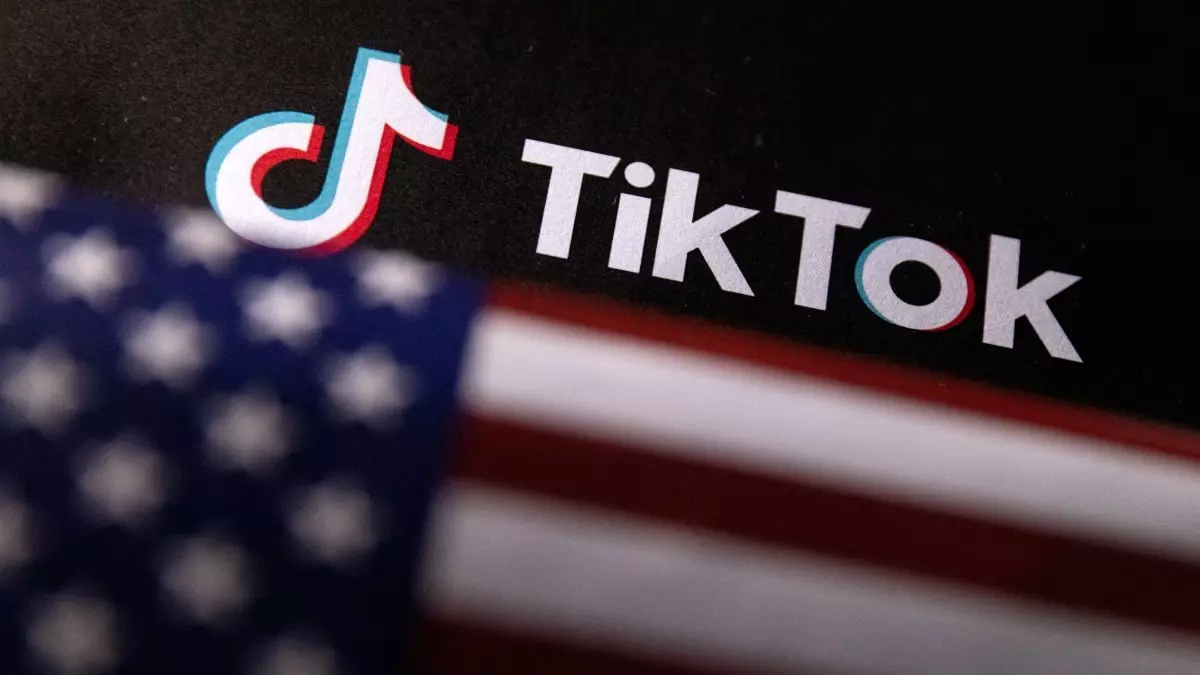In a significant twist in the ongoing saga between TikTok and the U.S. government, the popular Chinese-owned social media platform has made its re-entry to Apple and Google app stores. This development follows a pivotal moment occurring last month, when the app faced an uncertain future due to looming national security concerns. President Donald Trump intervened, postponing a ban that would have prohibited the app’s operation in the United States. In an environment characterized by geopolitical tension and technology warfare, the complexities surrounding TikTok’s status serve as a focal point in the larger narrative of tech regulation and international relations.
President Trump’s executive order effectively gave TikTok a temporary reprieve from a situation that could have drastically altered its availability in one of its largest markets. The order not only delayed a potential ban but did so while providing reassurances to tech goliaths Google and Apple that they would not face penalties for hosting the app. This delay comes in the wake of a new piece of legislation set to take effect, which mandates its parent company, ByteDance, to divest TikTok’s U.S. assets or face a total prohibition of the app. These actions reflect a broader tension between Washington and Beijing, raising questions about privacy, data security, and foreign influence.
Despite TikTok’s restart in operations, its return to app stores had been delayed by potential repercussions faced by its hosting companies. Analysts noted that Apple and Google were likely withholding the app from their platforms until they received definitive assurances from the government that they would not be implicated in any legal repercussions associated with supporting the app.
In a competitive landscape, TikTok remains a dominant player, having achieved over 52 million downloads in the U.S. alone last year. According to market intelligence firm Sensor Tower, it captured approximately 52% of its downloads from the Apple App Store while the other 48% came from Google Play. This shows that TikTok is far from just a fleeting trend; it has solidified its position as a cultural phenomenon influencing millions of American users.
The legislative framework that triggered these developments was officially signed into law by President Joe Biden in April. This law, instigated by escalating national security concerns, posits that foreign entities could exploit platforms like TikTok to gather intelligence on American citizens. With the U.S. government having never formally banned a significant social media platform, this raises the stakes considerably. The breadth of authority granted through the new legislation empowers the federal government to not only ban but also pursue the sale of other Chinese-operated applications, indicating a potential trajectory for broader tech regulation.
Trump’s comments about extending the 75-day reprieve for TikTok underscore the volatility of the situation. As discussions around the app’s future continue, various prospective buyers have emerged, including notable figures such as former Los Angeles Dodgers owner Frank McCourt. Analysts speculate that TikTok could fetch a staggering valuation, potentially up to $50 billion. The evolving discussions regarding its sale could present a unique opportunity for resolution amid chaos, yet they simultaneously highlight the ongoing tension surrounding digital privacy and Chinese ownership in American technology.
As the world watches attentively, the outcome of these negotiations and the broader implications of the U.S. stance on tech ownership will be significant. The unease regarding TikTok reflects a crucial junction for both policymakers and tech companies in the framework of globalization. The dynamics are not merely about a social media app but underline the larger discourse on digital sovereignty, user privacy, and the geopolitical chess match between the East and the West.
The question remains: Will TikTok be able to navigate this minefield of regulatory challenges and emerge with its identity intact, or will it be forced to redefine its operational framework in response to increasing scrutiny? The next decision on TikTok’s fate, expected as early as February, may well chart the course for similar platforms in the foreseeable future.

